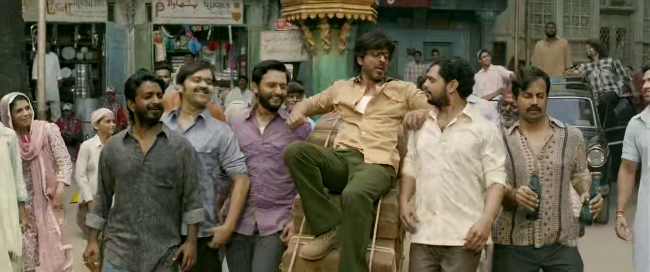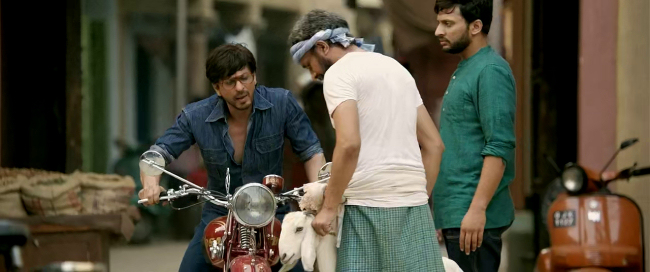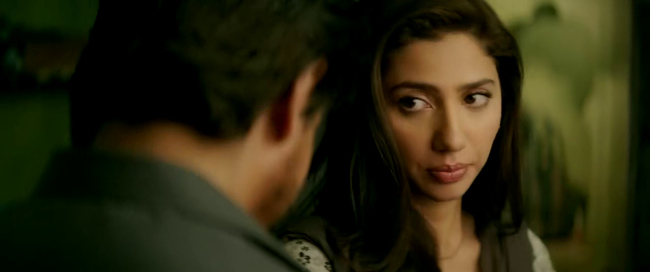
The myth of the virtuous gangster tends to become popular in times of economic stress. People get to thinking maybe just the person to cut through all the useless rules of a system that failed them is a thief, a forceful, uncompromising man--and gangsters certainly do nothing to disabuse people of the idea. The highest grossing Bollywood film of 2017, Raees, stars Shah Rukh Khan as a gangster turned politician said to be based on Abdul Latif. The film, with some nice fight scenes and a couple decent musical numbers, portrays Raees as almost a superhero. His uncanny ability to win against ridiculous odds is matched by his virtue in contrast to a wicked assembly of villains in the police force.

Aside from the more fantastic elements, the film is reminiscent of early 1930s gangster films of the kind that would star Jimmy Cagney or Edward G. Robinson. Raees' desire to build his own neighbourhood called "Our World" is reminiscent of Paul Muni's dreaming over the "World is Yours" sign in the original 1932 Scarface.

We're introduced to Raees as a child. Already he's a loveable rule breaker--we see him stealing the glasses off a statue of Gandhi when his mother (Sheeba Chaddha) can't afford to buy glasses for him. It's she who gives him the philosophy he holds for the rest of his life--no business is small and business is better than faith in religion so long as it does no harm.

The film begins with a title card telling us the filmmakers do not approve of the consumption of alcohol but, like the nods to the Hays code in the early 1930s, it's clear the filmmakers don't mean it. Apparently imported liquor is legal but domestic liquor can only be obtained on the black market where Raees establishes himself as a leading figure.

He starts as a lackey for a lower level boss, but even at this point he flexes muscles in ways that defy logic, as when he bribes a border guard and then proceeds to beat the man and demand that he fix his flat tire. The scene ends before we can see how it plays out--logically, it should result in the guard keeping the money and having Raees arrested, but Raees is at his liberty in the next scene. This is nothing compared to later in the film, though, when he gets off scot free after leading a mob of women throwing molotov cocktails at a parade for one of his political rivals. It ends with Raees grabbing and pulling his enemy's float with his bare hands before pummelling the man.

His nemesis is a police detective named Majmudar (Nawazuddin Siddiqui) who almost seems to sympathise with Raees. If Raees has any true flaw it's that he loses his temper sometimes when he shouldn't but the movie never shows any negative consequences of that.

Mahira Khan plays Raees' beautfiul wife, Aasiya, always shot with a flattering light breeze from somewhere ruffling her hair. She has no conflict with Raees and seems to fully endorse his criminal endeavours though the movie doesn't give her any opportunities to express opinions. She helps with the phone lines and helps with distribution when Raees starts giving out free food in the aftermath of a train derailment that caused a food shortage. It's all part of an overall strategy of the film which never quite directly endorses someone like Raees but . . . just so happens to portray him as godlike and unwaveringly benevolent.

No comments:
Post a Comment